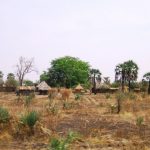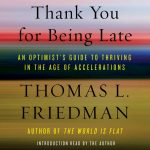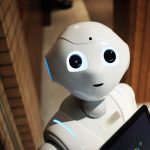Recent research indicates that pollution (air, water, …) is a major killer on a global basis. That pollution kills is… Read More



Recent research indicates that pollution (air, water, …) is a major killer on a global basis. That pollution kills is… Read More

Periodically, often after a unconscionable massacre such as Las Vegas or Orlando, the United States reviews the balance between the… Read More

Consider the fairly typical residence in this picture from Mfuwe, Zambia. This site has external sanitation facilities, a wood cook… Read More

Which came first: technology or society? Did the formation of social collaboration among early humanoids precede the first “technological” advances (fire, stone tools, etc.), or did these technologies form the catalyst for building more complex social structures?

All web sites such as this, that permit feedback, comments, etc., get some amount of “SPAM” (with apologies to Hormel)… Read More

I’m preparing a course for this Fall on the future, and pursuing a number of related books that will no… Read More

This new book, Irresistible: the Rise of Addictive Technology, points to a challenge that may be hitting a tipping point:… Read More

The U.S. government recently announced sanctions targeting Syrian scientists (and no doubt engineers; newspapers are not clear on the differences)…. Read More

United Airlines has been having it’s problems since recently ejecting a passenger to facilitate crew members getting to their next… Read More

Presumably we will reach a tipping point when Intelligent Devices surpass humans in many key areas, quite possibly without our… Read More

A recent anthology of “climate fiction,” Loosed Upon the World, projects climate change forward some years into dystopian scenarios. The editor,… Read More

VIZIO is reportedly paying fines for using TVs to track user’s viewing patterns in significant detail as well as associating… Read More

London haptic researchers have developed a device to add to a cell phone that will allow remote persons kiss, as… Read More

It should be noted that an early, if not first, instance of an online physical attack on a person has… Read More

“Alexa, tell me, in your own words, what happened on the night in question.” Actually the request is more like,… Read More

Guest Blog entry by Cassie Phillips With the recent, record-breaking distributed denial of service (DDoS) attacks carried out with hijacked Internet-of-Things… Read More

The powers of big data, AI/analytics, and subtle data collection are now converging to a future only hinted at in Orwell’s 1984.

With Siri and Alexa, you are being asked to “bug your house” with a device that listens to every noise in the house.
The ability to kill a target from a “position of safety” is essentially the basic design criteria for many weapon systems.

Should children have toys that can combine speech recognition with a Wi-Fi connection to capture and respond to them, and that potentially are able to record their conversations as well as feed them “messages”? Welcome to the world of Hello Barbie.